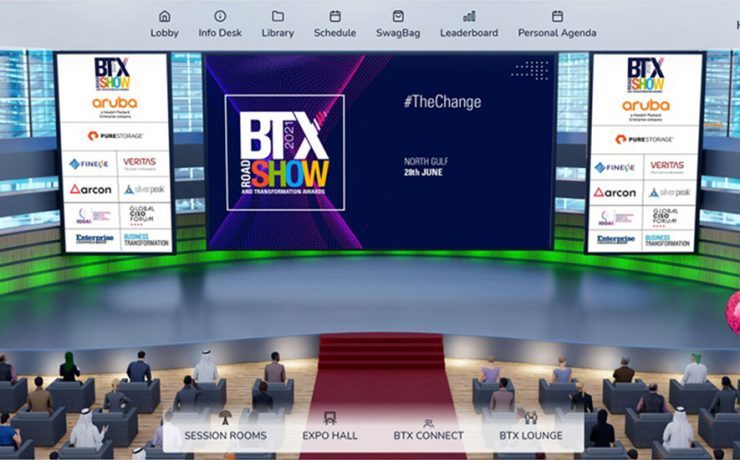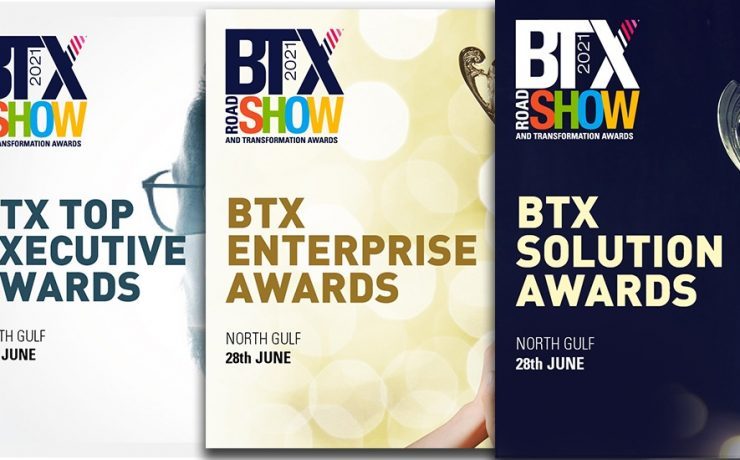GEC Media Group, publishers of Business Transformation, Enterprise Channels MEA, The Titans, Cyber Sentinels, completed the first leg of the BTX Road Show 2021, North Gulf Edition. The road show is focused on digital and business transformation with the overlying theme – The Change.
The half-day event on 28 June was hosted at the GEC Media Virtual Arena. The title sponsor was Aruba HPE and other sponsors included Pure Storage, Finesse, Veritas, SilverPeak, Arcon, International Group of Artificial Intelligence – IGOAI, and Global CISO Forum.
The pandemic of 2020 disrupted virtually every industry and every nation. Citizens, social fabrics, businesses, supply chains, trade, communication, value systems, workplaces, leisure, entertainment, decision making, almost everything conceivable had to adapt and change and survive. Information technology and business applications and strategic decision making around how to support everyday life through technology, has also had to adapt.
This has prompted the need to relook at business and the IT organisation, the executives, operations, survival mantras, decision making, and finally outlook and forward-looking vision. The meaning of business continuity, disaster recovery, collaboration, virtual meetings, remote workforce, cloud, security, have overnight changed from esoteric into everyday work life meanings.
BTX Road Show 2021 North Gulf edition was opened by CEO Ronak Samantaray; Global Head, Content and Strategic Alliances, Anushree Dixit; and Editor Arun Shankar, through their welcome notes.
There were four speaker keynote presentations, three technology keynote presentations, and two panel discussions. The event was followed by the BTX Awards. Close to 100 attendees participated virtually for the event. The event was streamed live from the virtual arena and on Vimeo also.
Here are the highlights of the various speaker keynote presentations.
Transformation initiatives at Saudi Electricity Company
In the opening keynote address Meshal ALFouwais, Digital Transformation Initiative Manager, at Saudi Electricity Company, explained about the various digital transformation initiatives taken by the utility company. The pandemic has accelerated the need to bring in digital transformation, because of lockdowns and the need to limit human to human engagement.
Saudi Electricity Company has initiated 14 digital transformation initiatives with the above objective of managing the challenges of the pandemic while also driving efficiency and cost savings. In his presentation, ALFouwais gave details about initiatives around smart gates, robotic patrol cars, drones, AR-VR, and RPA.
The purpose of the smart gates was to check that all employees are suitably masked and went through a temperature check. This has been installed in 300 buildings across the country. There was 60% reduction in the use of security guard services, according to ALFouwais, with this initiative.
Robotic patrol cars moved along the length of the perimeter fence sometimes as long as 10+ km. They are required for 41 power plants and 1,600 sub-stations. The robotic patrol cars resulted in 65% reduction in demand of maned security vehicles, points out ALFouwais. These vehicles are using artificial intelligence and immersive technology to identify unknown objects inside the plant and along the perimeter.
However, the most impressive use case was the one using drones to inspect electric transmission pylons. ALFouwais points that usage of drones is still at its infancy and permission is required from multiple agencies before they can be used. Saudi Electricity Company has more than 40,000 km of electric transmission lines in the country, which need to be monitored for corrosion and wear and tear. Selection of the drones to be used will be completed by testing their capability against 200 standard images of the transmission poles.
Saudi Electricity Company is also using AR and VR to improve the training and skills capability of its workforce. With the reduction of workforce onsite there is more pressure on the field to staff leading to the possibility of errors. Errors can prove to be serious due to the high cost of the equipment. ALFouwais says that errors are now below 5%.
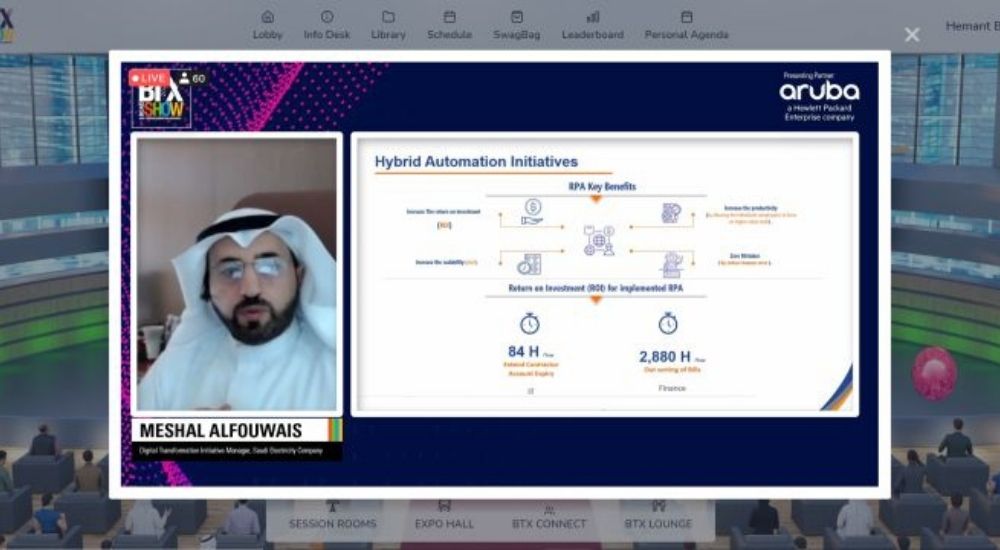
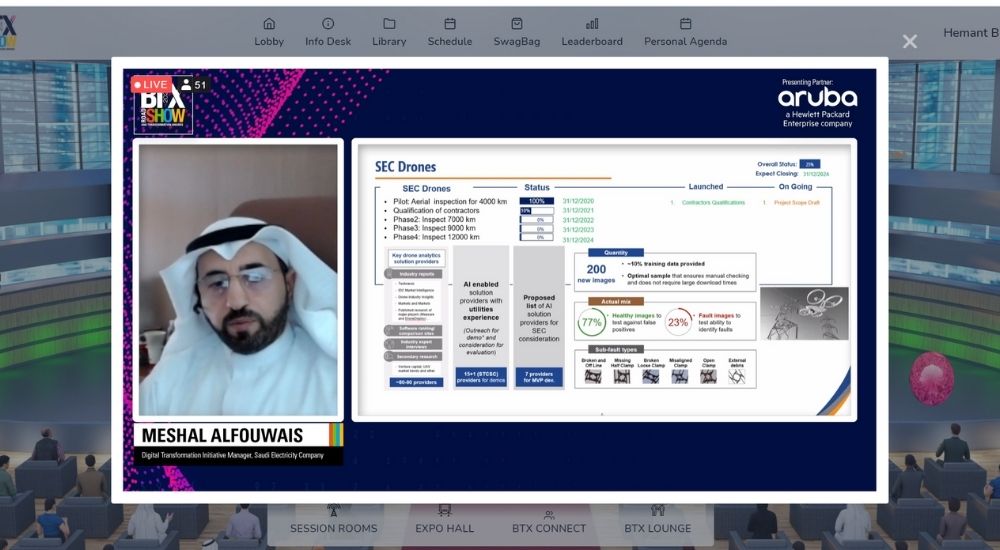
Scaling sustainability at King Abdullah Economic City
Amr Salah, Senior Director, Utilities and Sustainability Program, Emaar, King Abdullah Economic City made his presentation on utilities innovation in smart cities. King Abdullah Economic City is located on the West coast of Saudi Arabia and has been in existence since 2008. It is a smart city, logistic, commercial, and residential hub and has been set up to meet the objectives of Vision 2030. It has a strategic position between Europe, Africa, and Asia. As well as between India, Far East and China. It is the first city in the world developed by the private sector in partnership with the government of Saudi Arabia.
It has been in existence since 2008 and 20% of the land area has been developed, while another 15% is under development. It includes the King Abdullah Port, hospitals, golf course, educational institutions, hotels, residential units. In area it is 184 sq km and is the same as Washington DC. King Abdullah Economic City remains disconnected from the rest of Saudi Arabia in terms of power and water, with Jeddah a distance of 100 km away.
King Abdullah Economic City follows aggressive sustainable targets. This includes 3,000-4,000 smart meters for both water and electricity; 240 km of roads; 14,000 light poles with smart lights; 460 km of fibre optics for telecom services; 100% water from desalination plants; 100% recycled water for irrigation; and 20% recycled water from waste water; nil water and power cuts to date.
King Abdullah Economic City has set an ambitious target of producing utility scale renewable energy to match the country’s target of 30-50 Gigawatt of solar energy. There is also a utility command centre to manage all the smart solutions including water, electricity, and power.
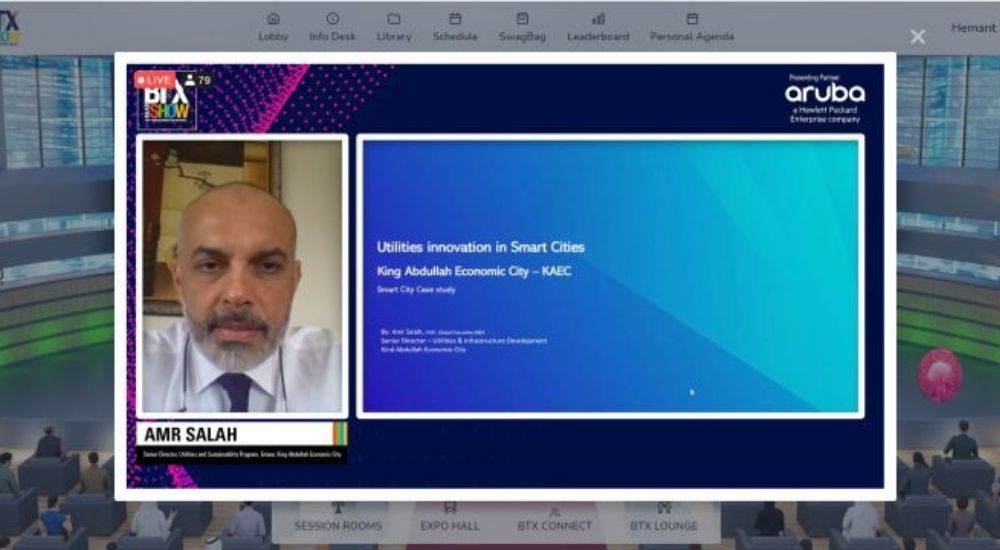
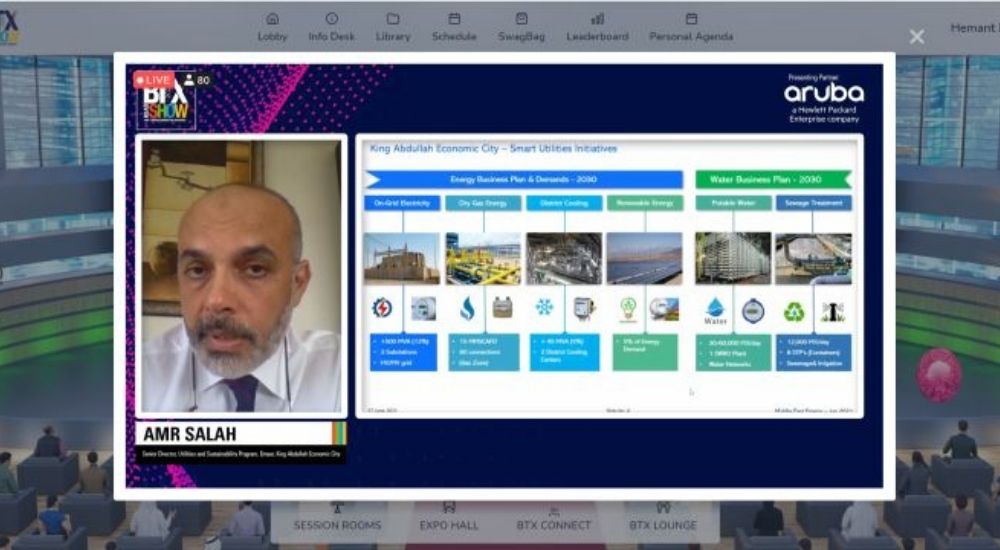
Post-pandemic security challenges
In the first panel discussion, cyber security evangelist Dr Erdal Ozkaya explained the reasons for creating the Global CISO Forum. He explained that the forum helps to create a sense of belonging for CISOs, brings them together, and helped collaboration. The opening theme for the panel members was what were the learnings from the pandemic. Panel members included Meshal Alotaibi, CISO, Specialised by STC; Vivek Silla, Security and Assurance Professional, Leading BFSI organisation; Navaneethan M, SVP and CISO, UPay; Abdelmajed Fadol, Cyber Security Senior Consultant.
Panelists drew attention to the challenges raised by the pandemic and the need to build competency in various practices such as business continuity, disaster recovery, full control over backup, security operations centre, and going all manual as fall back. In the future we do not know what will be happening – was one of the strong comments.
Another point of discussion was how vendor risk management has taken centre stage after the SolarWinds hack that impacted 30,000+ global customers and has also drawn attention to the exposed backdoor vulnerability. CISOs need to build a 360-degree view of their organization and pay special attention to critical vulnerabilities. CISOs need to tread a middle line between being passionate and not paranoid about security. They need to be enablers of business and not showstoppers.
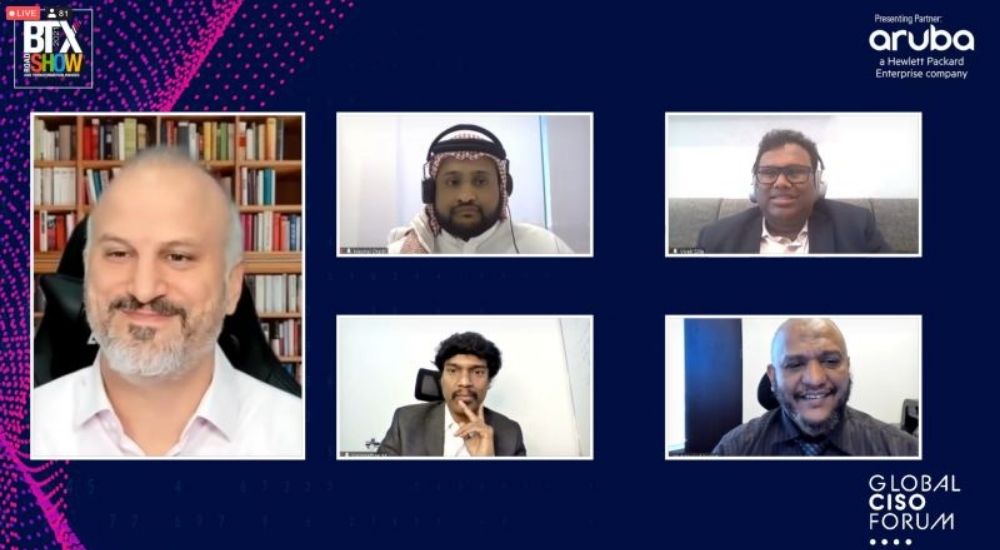
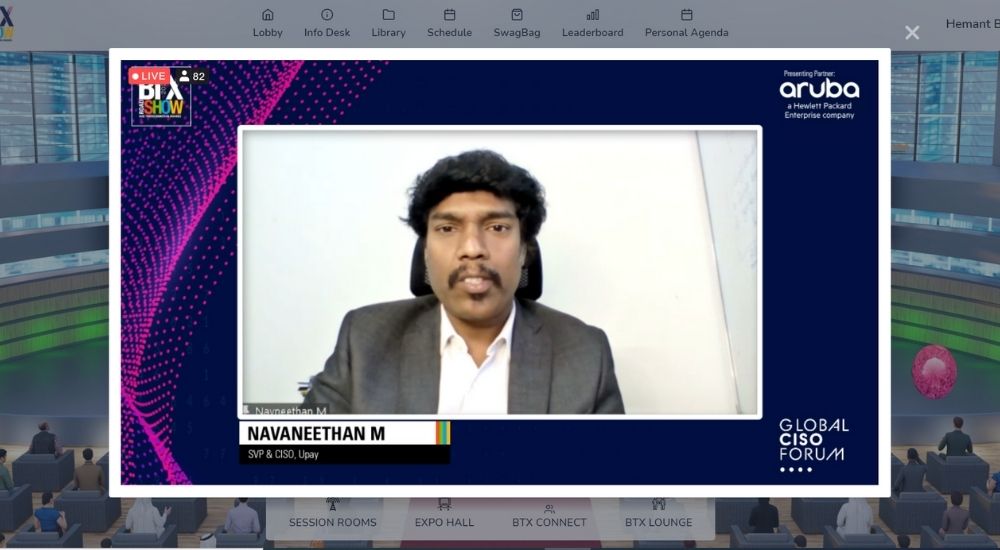
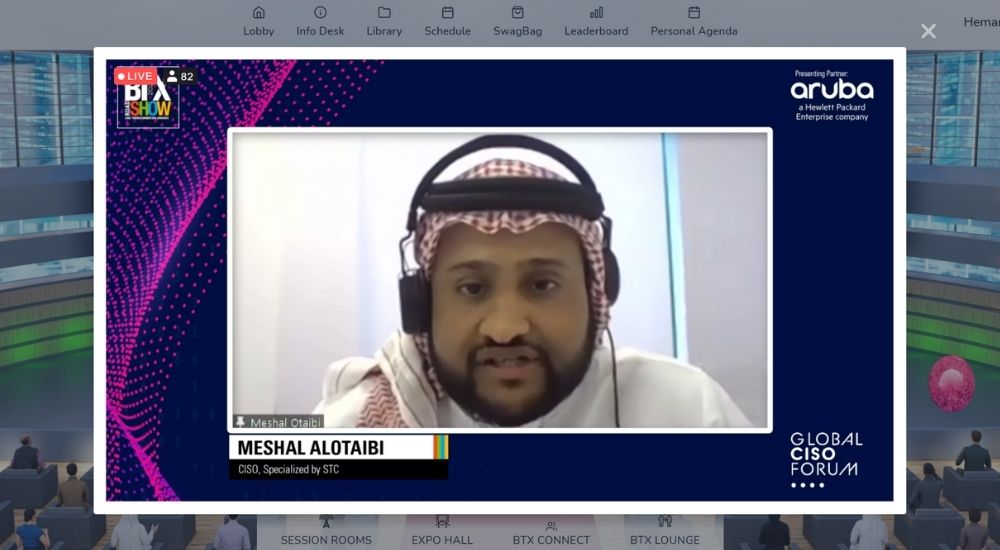
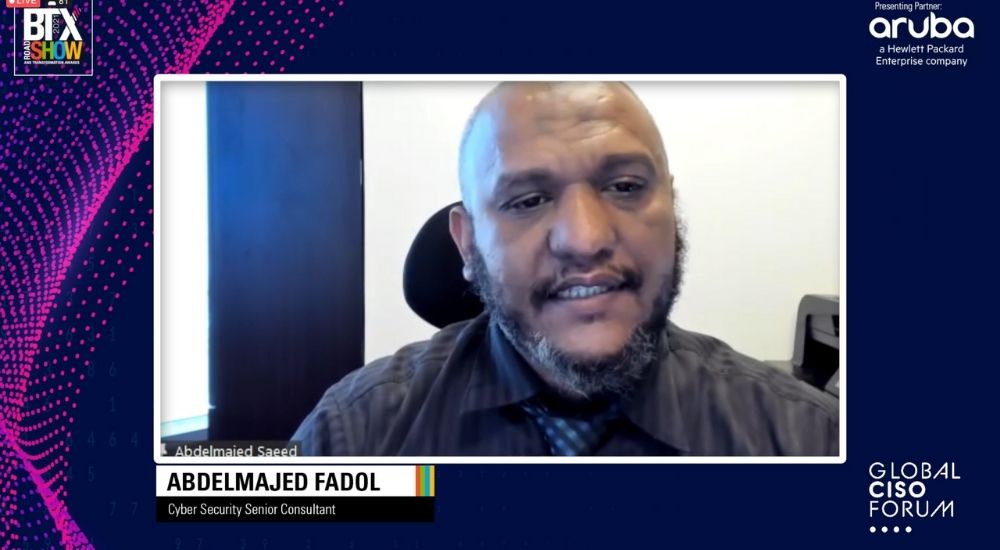
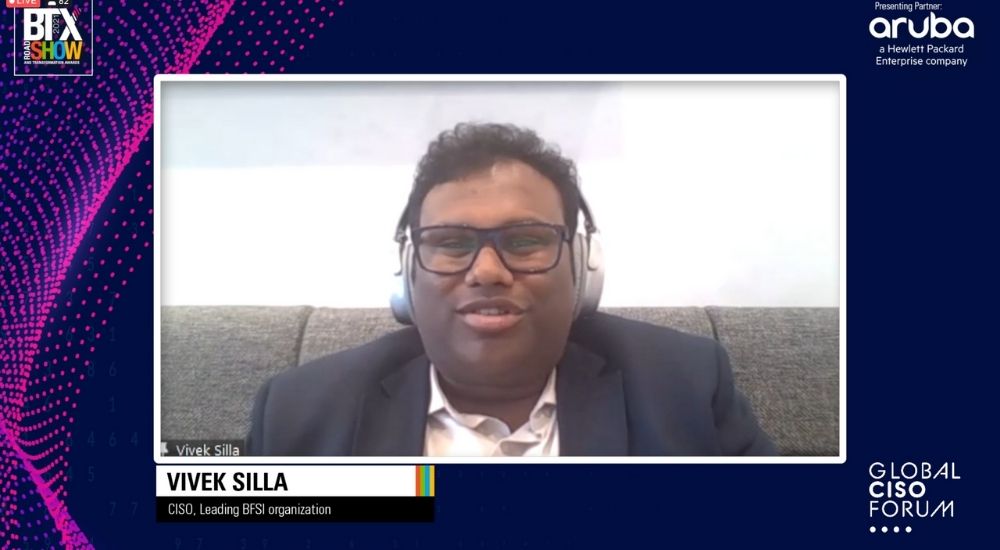
Deep dive into predictive analysis
The second panel discussion was chaired by Ahmed SalehAlBalooshi, Managing Director, Fintech ICT Services and Consultations. Dr Jassim Haji, President, International Group of Artificial Intelligence – IGOAI, explained about the objectives of the newly formed Group. He also pointed out that predictive analysis was amongst the fastest growing areas in artificial intelligence. The panel members included Sh Khalid AlKhalifa, Dr Emmanuel Goffi, and Dr Ilham Slimani.
The panel discussed the use cases of predictive analysis in education, healthcare, banking and finance. They pointed out that data is the starting point for any digitisation, and data is more than oil for artificial intelligence. Since the value of data is never reduced, in some cases it is more valuable than oil. Predictive analysis does not rely on data. The past is not a good example of the future and the rear-view mirror is not reliable indicator of the future.
The panel also discussed the importance of ethics since artificial intelligence is immensely powerful and can directly impact human life, for example in healthcare. The panel also raised various deep dive discussions, whether blockchain is more important than artificial intelligence to finance.
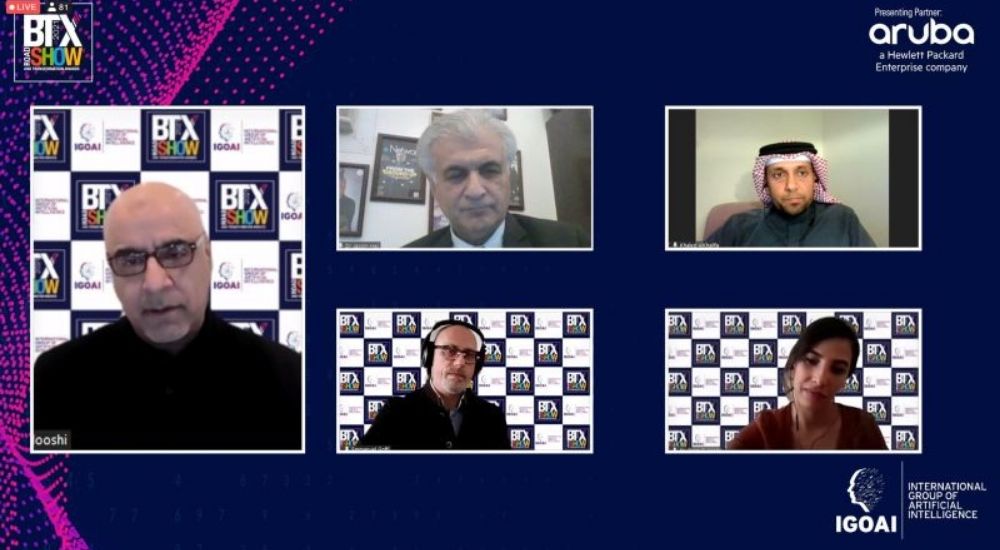
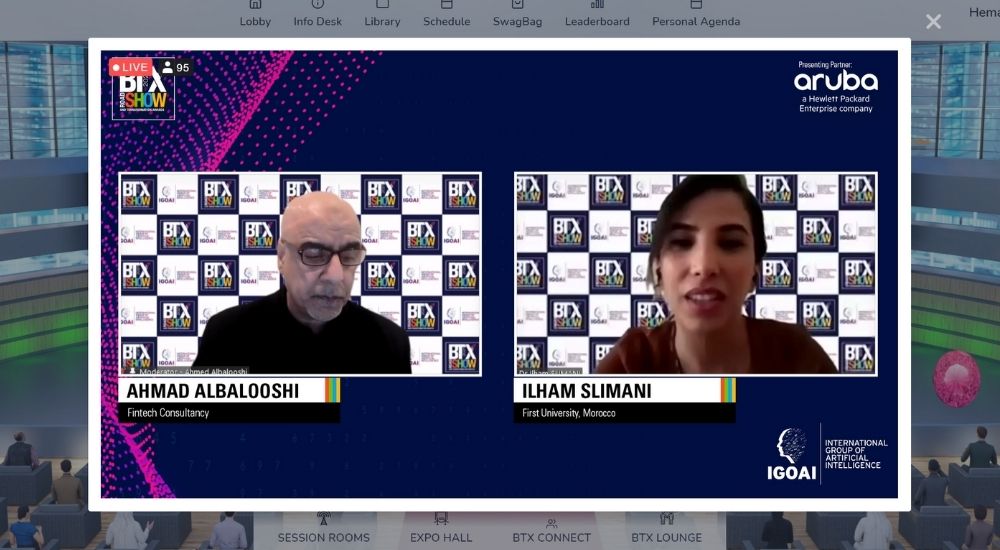
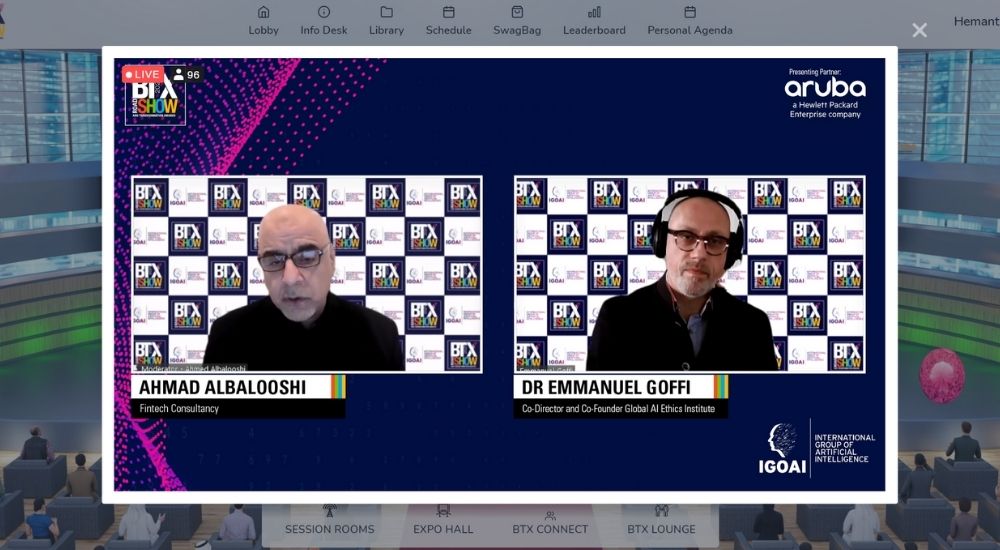

How smart cities are improving human lives
In her presentation, titled Regional technology and innovation trends in smart cities, Dr Harpreet Seth, Head of Architecture Studies, Heriot-Watt University Dubai, raised a few questions. She asked whether smart cities are creating a digital divide. The objective of smart cities should be to create human centric cities, while improving the health of citizens. Smart cities need to be planed for the unexpected, change is the future and change is uncomfortable. Every new digital platform creates a new experience and creates a livable future. The pandemic also revealed that de-globalisation was a better response that globalisation.
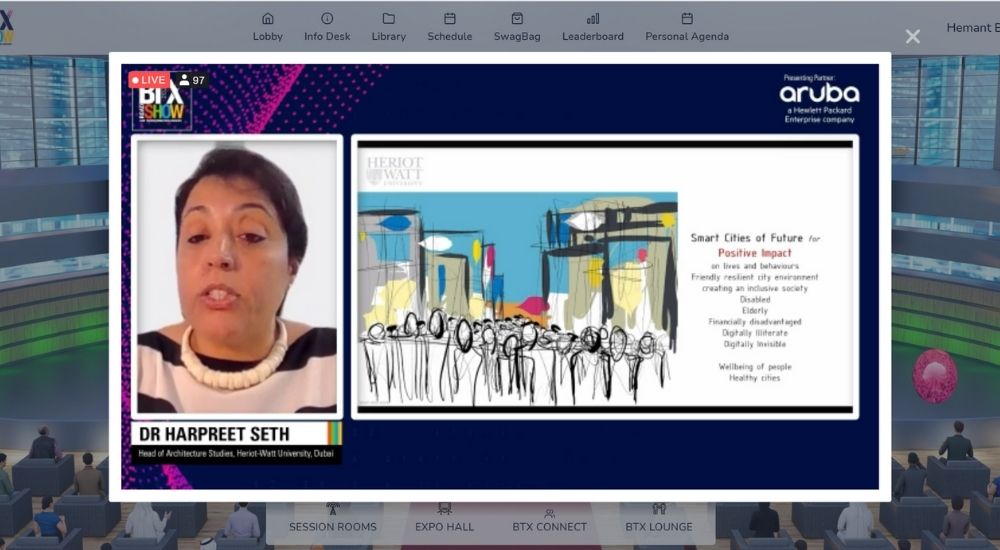
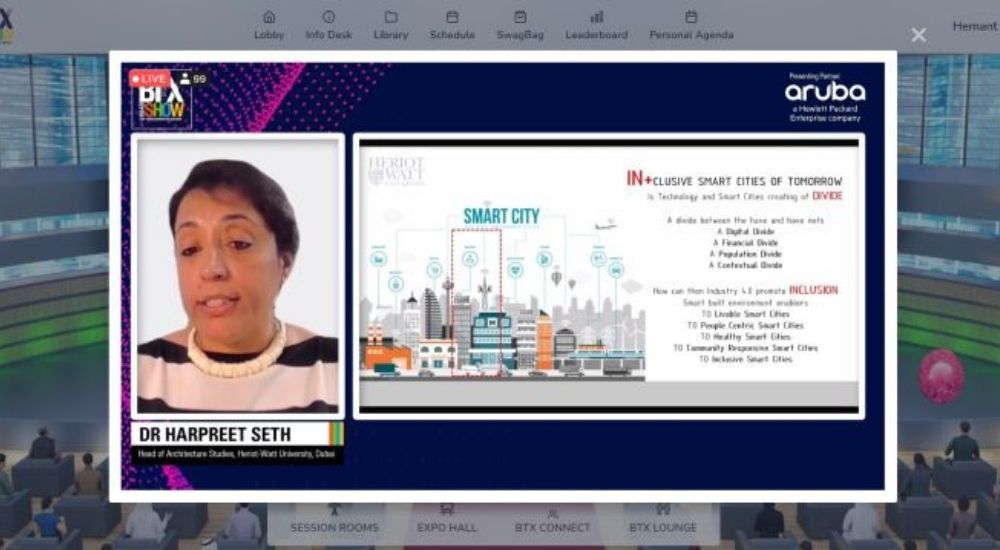
Corporate wellness is a powerful motivator
Ektaa Sibal, India’s #1 Inner Self Transformation Specialist, International Meditation Expert, and Global Wellness Coach, spoke on how building a corporate wellness culture is a key for organisational transformation and building motivation. Ektaa pointed out how leaders manage stress influences the motivation of employees, and the importance given to employees has benefits. WHO listed stress as a world-wide challenge well before the onset of the pandemic.
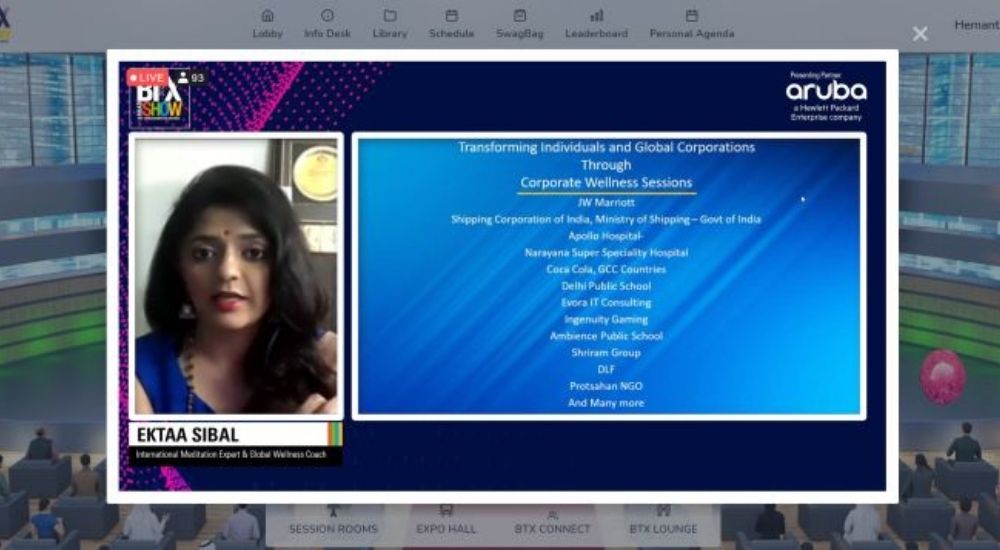
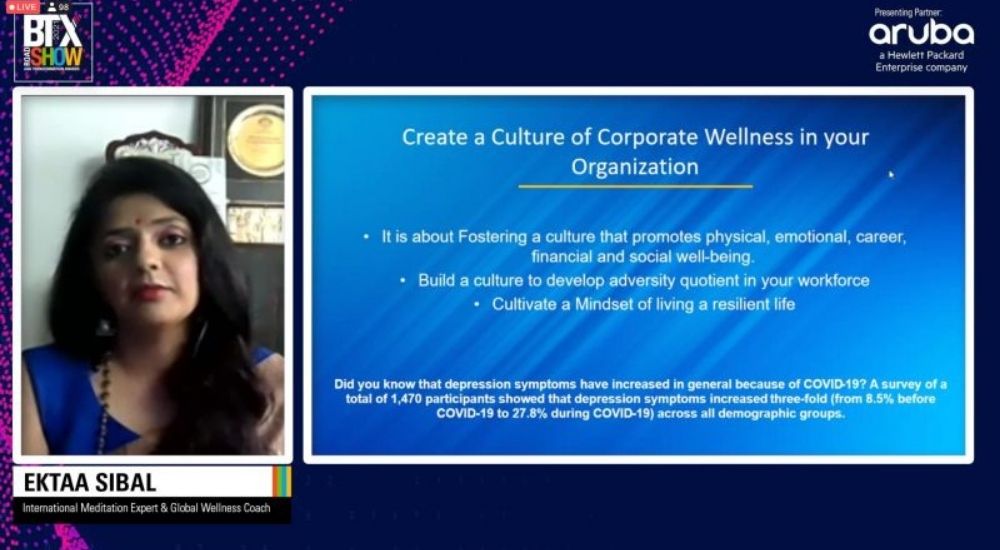
WAN solutions for cloud and edge
Simon Pamplin, Chief Technologist at Aruba CT presented his keynote on Building hybrid cloud for the digital era. Pamplin talked about the challenges of managing the complexity of hybrid and multi-cloud and network congestion. He presented the SilverPeak solution to manage WAN, Edge, policies, and security transformation.
Muhammad Abu Ghalioun, System Engineer, at Aruba presented a related keynote on Edge Services Platform. He presented Aruba’s solutions for the Edge including the platform architecture, and the benefits of using Aruba Clear Pass, with Active Directory, and device authentication.
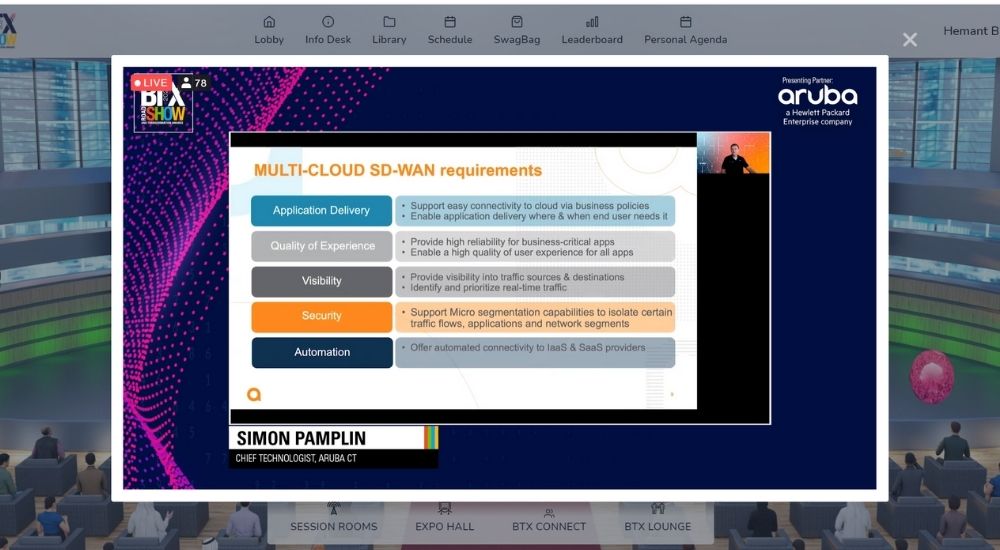
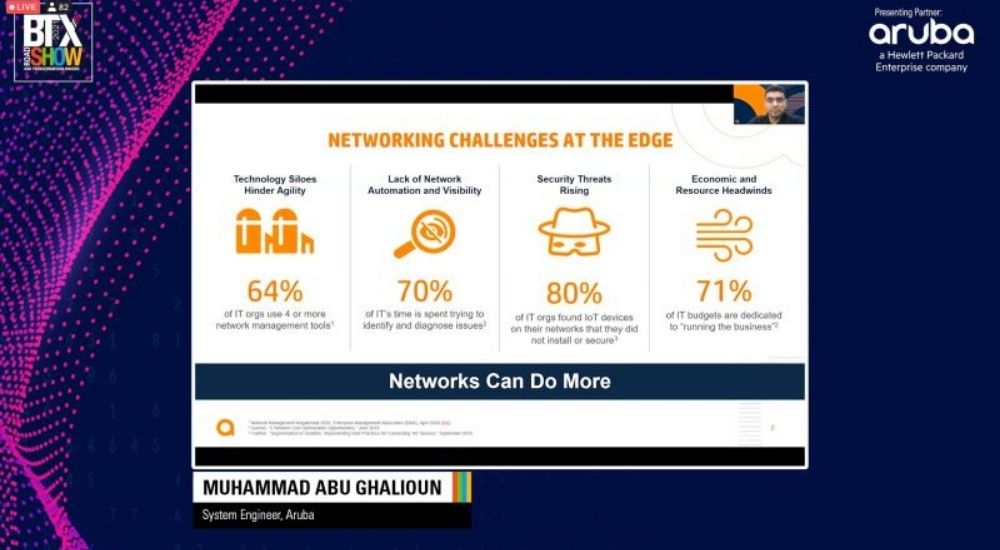
Agile storage for transforming enterprises
Abdullah Albaz, Sales Manager, Saudi Arabia at Pure Storage gave his keynote on Role of agile data storage solutions in business transformation. Albaz pointed out that Pure Storage is reinventing the data storage experience. Data growth and data complexity are creating lost business opportunities for enterprises. There is high pressure on IT to meet business needs. Software driven storage on the other hand provides simplicity for end users.
Flash based media used by Pure Storage provides reliability of six nines and lifelong warranty on all media. Albaz stressed that Pure Storage devices do not have end of support life and no forklift is required for any upgrades. This is covered in the Evergreen programme. Pure Storage also provides cloud as a service across public and private cloud platforms.
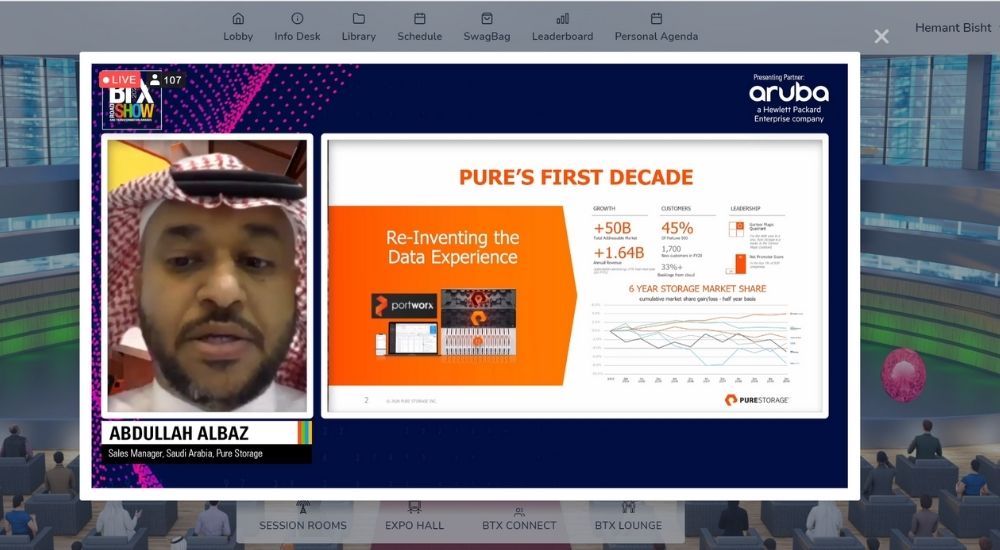
With the successful completion of the BTX Road Show 2021, North Gulf edition, the next BTX South Gulf edition will take place on 23 August followed by BTX Asia on 26 August and BTX Africa on 27 September.
List of speakers
Invited keynotes
Digital transformation of Saudi Electricity Company
Meshal ALFouwais
Digital Transformation Initiative Manager
Saudi Electricity Company
Utilities innovation in smart cities
Amr Salah, Senior Director, Utilities and Sustainability Program,
Emaar, King Abdullah Economic City
Regional technology and innovation trends in smart cities
Dr Harpreet Seth, Head of Architecture Studies
Heriot-Watt University Dubai
Corporate wellness culture: Key to bringing business transformation and building motivation
Ektaa Sibal, India’s #1Inner Self Transformation Specialist, International Meditation Expert, Global Wellness Coach
Technology keynotes
Building hybrid cloud for the digital era
Simon Pamplin
Chief Technologist, Aruba CT
Edge Services Platform
Muhammad Abu Ghalioun, System Engineer
Aruba
Introducing Pure Storage, Modern Data Experience
Abdullah Albaz, Sales Manager, Saudi Arabia
Pure Storage
Panel discussions
Global CISO Forum, Panel discussion: The Shifting Cyber Security Landscapes and CISO Experience
Dr Erdal Ozkaya, Global CISO Forum
Meshal AlOtaibi, CISO, Specialised by STC
Vivek Silla, CISO, Leading BFSI organisation
Navaneethan M, SVP & CISO, Upay
Abdelmajed Fadol, Cyber Security Senior Consultant
IGOAI, Panel discussion: Importance of artificial intelligence in regional business transformation
Jassim Haji, President, IGOAI
Ahmad AlBalooshi, Fintech Consultancy
Sh Khalid AlKhalifa
Dr Emmanuel Goffi
Dr Ilham Slimani


